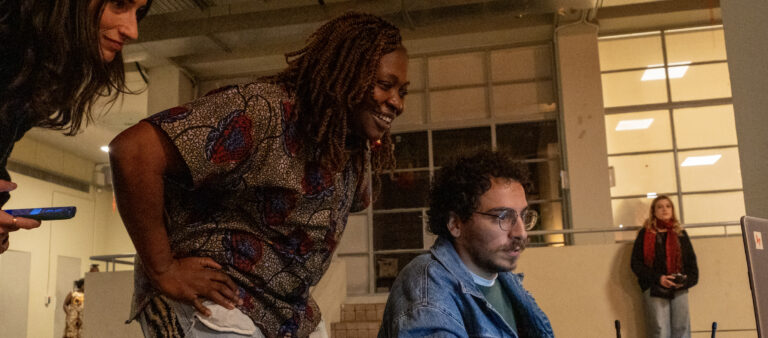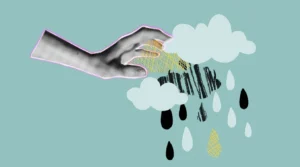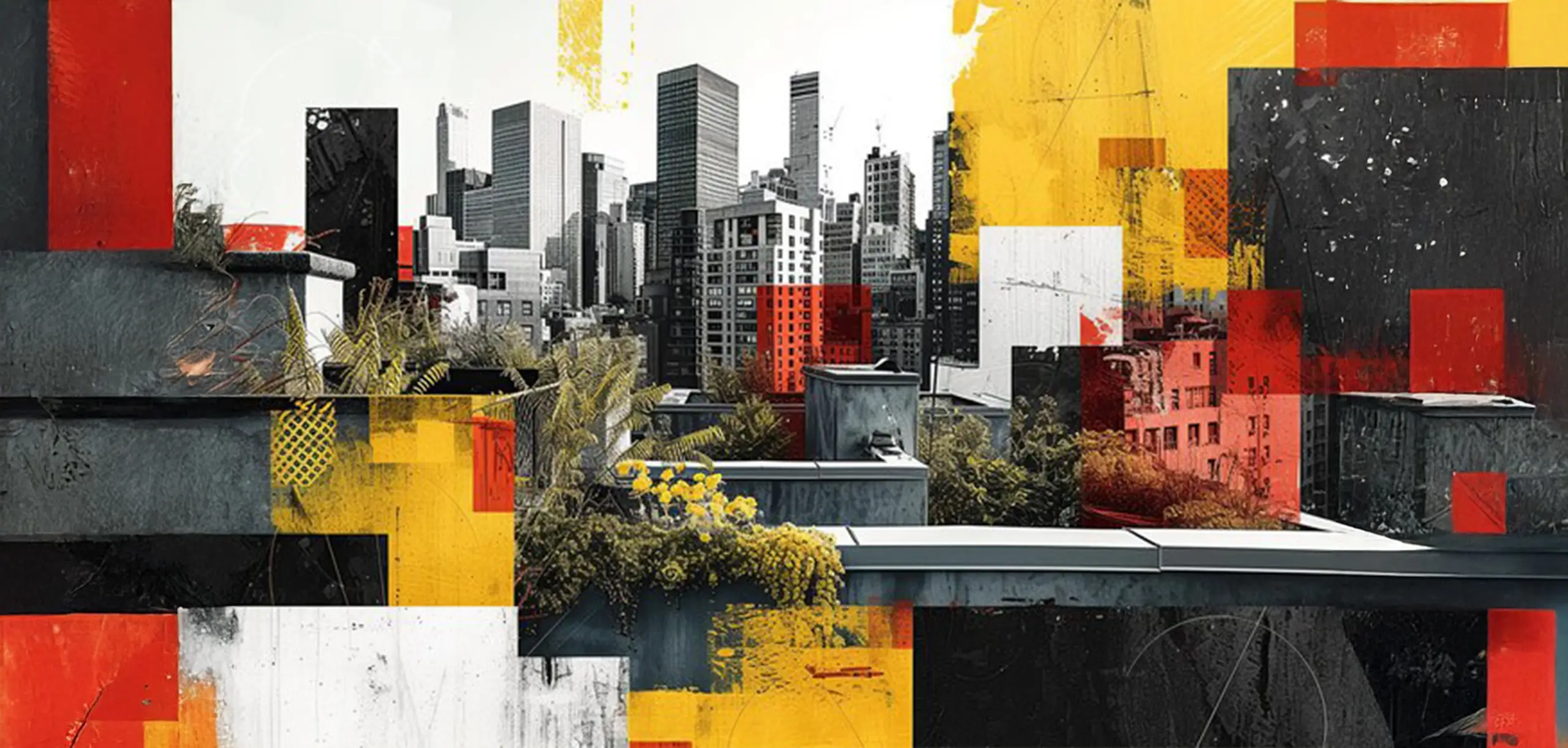For days, residents of Tyre, Abbasiya, and Burj Al-Shamali have been living under the suffocating weight of a crisis, as thick smoke rises from burning waste. People in South Lebanon have been voicing mounting complaints and issuing constant calls for solutions to ease their suffering. Silat Wassel has received numerous reports, especially from residents of the Sharniyeh area in Burj Al-Shamali, where pollution has turned into a daily nightmare that disrupts their lives.
Ali Hammoud, a resident of Abbasiya, says:
“We’ve gotten used to the smoke from the landfill for years. But with the fermentation of waste, the recent war, and the dumping of oil and diesel, the fires have intensified and the smoke has worsened. Unfortunately, no solution seems in sight, because closing the landfill would leave garbage piling up in the streets.”
Jameela Abbas, a resident of Burj Al-Shamali, paints a grim picture:
“Fog covers the whole town. We suffer from constant coughing. It’s as if death doesn’t just come from enemy rockets, but also chases us through the cancer-causing toxins released by the burning landfill.”
In Tyre, resident Leila Srour says:
“The situation has become absolutely unbearable. The landfill smoke and the foul stench fill the entire area. With each passing day, the health damage worsens rapidly. The people of Tyre are slowly choking.”
These growing complaints reflect the magnitude of a crisis that has reached alarming levels. With no effective waste management plans in place, municipalities are left to face the situation alone—without financial, technical, or even regulatory support—leaving open-air burning as their only option. Despite the escalating environmental and health disaster, authorities continue to ignore the issue as though it does not require an urgent response.

An aerial photo shows the city of Tyre blanketed in smoke from burning waste.
Municipality of Burj Al-Shamali: The landfill caught fire for reasons still unknown.
In a statement on its official Facebook page, the Municipality of Burj Al-Shamali said:
While the municipality tries to contain the crisis with the limited means at its disposal, the question remains: How long will residents have to endure this suffering? And where are the authorities responsible for addressing the waste crisis before it escalates into an even greater environmental and health catastrophe?
Paul Abi Rached: Mafias are running the waste sector while the state fails to act!
Environmental expert and President of the Terre Liban Association, Paul Abi Rached, told Silat Wassel:
“Unregulated dumps have been scattered across South Lebanon for a long time, frequently catching fire and polluting the air, soil, and groundwater, as well as blighting the landscape—all under the control of mafias handling the waste sector.”
He adds:
“What’s happening in Burj Al-Shamali, with the landfill burning and polluting the air in the Tyre area, is the result of poor waste management, negligence by the Lebanese state, and its failure to properly address this issue.”

A photo from Abbasiya, South Lebanon, shows the heavy smoke from burning waste rising into the air.
Abi Rached: Is the Lebanese government preparing the public for an incinerator deal instead of adopting environmental solutions?
Abi Rached questions whether the persistence of chaotic waste management is deliberate:
“Since 2010, is the only thing the government wants to do impose costly and harmful incinerator projects? And did the Environment Minister’s statement—just one day after the government won the vote of confidence—about solving the waste problem by building one incinerator for all of Lebanon, amount to preparing the public for an incinerator deal?”
What’s happening in Burj Al-Shamali—with the landfill burning and polluting the air in the Tyre area—is the result of poor waste management, negligence by the Lebanese state, and its failure to address the issue properly.
He stresses that a sustainable environmental solution for waste is easy to implement, inexpensive, and quick, while also reducing disease and emissions. He underscores the importance of adopting decentralization in waste management and involving citizens in solutions, as this can create many job opportunities.
Kawtharani: Legal actions underway to address the waste crisis amid ministerial promises to intervene.
Lawyer Ali Kawtharani, a member of the Farah Media Association and its representative in the Union of NGOs in Tyre, confirms that the recent increase in waste fires has caused harm to traffic flow and public health.
He explains that contact has already been made with Environment Minister Dr. Tamara El Zein, who promised to help find a solution to the crisis, and with South Lebanon’s Public Prosecutor, Judge Raheef Mazan, who took legal measures. These included securing commitments from the parties involved to ensure cooperation in resolving the issue, as well as opening a formal case and launching transparent investigations.
Kawtharani adds that the cause of the fire remains unknown and that investigations are ongoing to determine whether it was intentional or caused by high temperatures and the reaction of flammable gases. He stresses that if the reason is poor waste management—due to the state’s failure to establish sorting plants and sanitary landfills, forcing municipalities to resort to these unregulated dumps to avoid garbage piling up in the streets—then those responsible for such negligence must be held accountable. He emphasizes that Tyre, with its deep history and heritage, cannot remain hostage to such harmful practices.
Kawtharani: From Burj Al-Shamali to Abbasiya and Hmaidiyeh… waste burns and the suffering grows.
Kawtharani points out again that the waste-burning crisis is not limited to the Burj Al-Shamali landfill but extends to other towns such as Abbasiya and Hmaidiyeh, worsening the region’s environmental situation.

A photo of the Burj Al-Shamali landfill in South Lebanon.
Environmental activist Pierre Baaklini posted on his Facebook account expressing his concern over the rising toxic smoke.
Pierre Baaklini: Haven’t the people suffered enough from the war for burning waste to be added to their misery?
Baaklini wrote:
“Sadly, we have more than 1,000 unregulated dumps in Lebanon! Isn’t it enough that the people of the South are already enduring the consequences of war and destruction? Burning waste has disastrous effects on public health!”
Environmental Activist: The easiest—and most dangerous—solution is burning waste and releasing toxins into the air.
An environmental activist, who preferred to remain anonymous, criticized the failure of the authorities, saying:
“Everyone failed to address the problem, so the easiest solution—which isn’t used even in the most underdeveloped countries—was burning, sending toxins into the air and threatening residents’ health.”
Everyone failed to address the problem, so the easiest solution—which isn’t used even in the most underdeveloped countries—was burning.
In statements to Silat Wassel, he also criticized the contradiction in how municipalities handle the waste file:
“Awareness workshops are regularly organized to encourage citizens to sort waste into dedicated containers, often funded by the European Union. But once the funding ends, the idea completely fades away. Worse still, garbage trucks don’t even adhere to the sorting principle—mixing the containers together during collection—rendering the whole process pointless. It’s as if the awareness efforts targeted only the public, without engaging the authorities responsible for implementing them effectively.”
Despite environmental experts stressing that proper waste management starts with sorting at the source and recycling—not burning—it appears that vested interests and financial gains are what control this issue amid the current deteriorating reality.




















